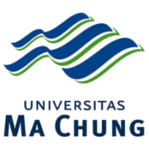EMERGENCY REMOTE TEACHING OF MANDARIN CLASSES DURING THE COVID-19 PANDEMIC
Abstract
During the pandemic, education is often called “emergency remote teaching.” Remote teaching and learning is a learning system that occurs beyond the physical buildings of the campus/school using the internet and electronic gadgets (computers, smartphones, etc.), which can help the teaching and learning process occur remotely. This paper employed a survey method to gather the data. With this method, the authors designed questions through an online questionnaire to tap teachers’ perceptions about how they have run online classes during the pandemic. This study focuses on two problem formulations: the extent to which Chinese language teachers carry out emergency Chinese online teaching and learning activities during the pandemic and how teachers carry out Chinese emergency online teaching and learning activities. This study found diversity in implementing Chinese emergency online classes, where most research subjects belong to high-prepared category. This proves that the response of Chinese language teachers is quite adaptive to implementing emergency online learning during this pandemic.
Keywords: remote, online, independent, emergency
References
Akbana, Y. E., Rathert, S., & Ağçam, R. (2021). Emergency remote education in foreign and second language teaching. Turje, 97-124.
Arifin, Z. (2011). Penelitian pendidikan metode dan paradigma baru. PT Remaja Rosdakarya.
Ayunda, A. Z., Salsabila, U. H., Zuhby, N. E., & Urbaningkrum, S. M. (2021). Peningkatan kinerja guru pada masa pandemi dengan sistem daring. Jurnal Ilmiah Pendidikan Profesi Guru, 432.
Cahyadi, A., Hendryadi, Widyastuti, S., & Suryani. (2021). COVID-19, emergency remote teaching evaluation: the case. Education and Information Technologies.
Contreras, G. W. (2020). Getting Ready for the Next Pandemic COVID-19: Why We Need to Be More Prepared and Less Scared. Journal of Emergency Management, 18 (2), 87-89.
Ginting, D., Djiwandono, P. I., Woods, R., & Lee, D. (2020). Is autonomous learning possible for Asian students? The story of a MOOC from Indonesia. Teaching English with Technology, 20(1), 60-79.
Ginting, D., Fahmi., Barella, Y., Linarsih, A., & Hamdani, B. (2021). Foreign language students’ voices on blended learning and fully online classes during the COVID-19 pandemic. World Journal of English Language, 11(2), 62-70.
Ginting, D. (2022). Ethical Research Dilemmas and Their Implications In English Language Teaching Studies. Acitya: Journal of Teaching and Education, 4(1), 110-123.
Ginting, D. (2022). Ethical Research Dilemmas and Their Implications In English Language Teaching Studies. Acitya: Journal of Teaching and Education, 4(1), 110-123.
Ginting, D., Sulistyo, T., Ismiyani, N., Sembiring, M. J., Asfihana, R., Fahmi, A., ... & Mulyani, Y. S. (2022). English Language Teacher’s Multimedia Knowledge in Teaching Using Technology. World, 12(6).
Ginting, D., Woods, R., Tantri, N. R., Rahayu, P. S., & Asfihana, R. (2022). Portraying the performance of Indonesia’s massive open online course facilitators. SAGE Open, 12(3), 21582440221116601.
Siregar, M. Y., & Akbar, S. A. (2020). Strategi Guru dalam Meningkatkan Kualitas Mengajar selama Masa Pandemi COVID-19. At-Tarbawi, 206
Sofyana, L., & Rozaq, A. (2019). Pembelajaran daring kombinasi berbasis Whatsapp pada kelas karyawan Prodi teknik informatika Universitas PGRI Madiun. Janapati, 82.
Xu, Y., & Buckingham, L. (2021). Adaptation to emergency remote teaching: an ESOL course for older Chinese learners. Open Learning: The Journal of Open, Distance and e-Learning, 1-17
Xu, Y., Jin, L., Deifell, E., & Angus, K. (2021). Facilitating technology-based character learning in emergency remote teaching. Foreign Language Annals

This work is licensed under a Creative Commons Attribution-ShareAlike 4.0 International License.
Open Access Policy
This is an open access journal which means that all content is freely available without charge to the users or their institution. Users are allowed to read, download, copy, distribute, print, search, or link to the full texts of the articles, or use them for any other lawful purpose, without asking prior permission from the publisher or the author. This is in accordance with the BOAI definition of open access.
![]() This work is licensed under a Creative Commons Attribution-ShareAlike 4.0 International License.
This work is licensed under a Creative Commons Attribution-ShareAlike 4.0 International License.

















